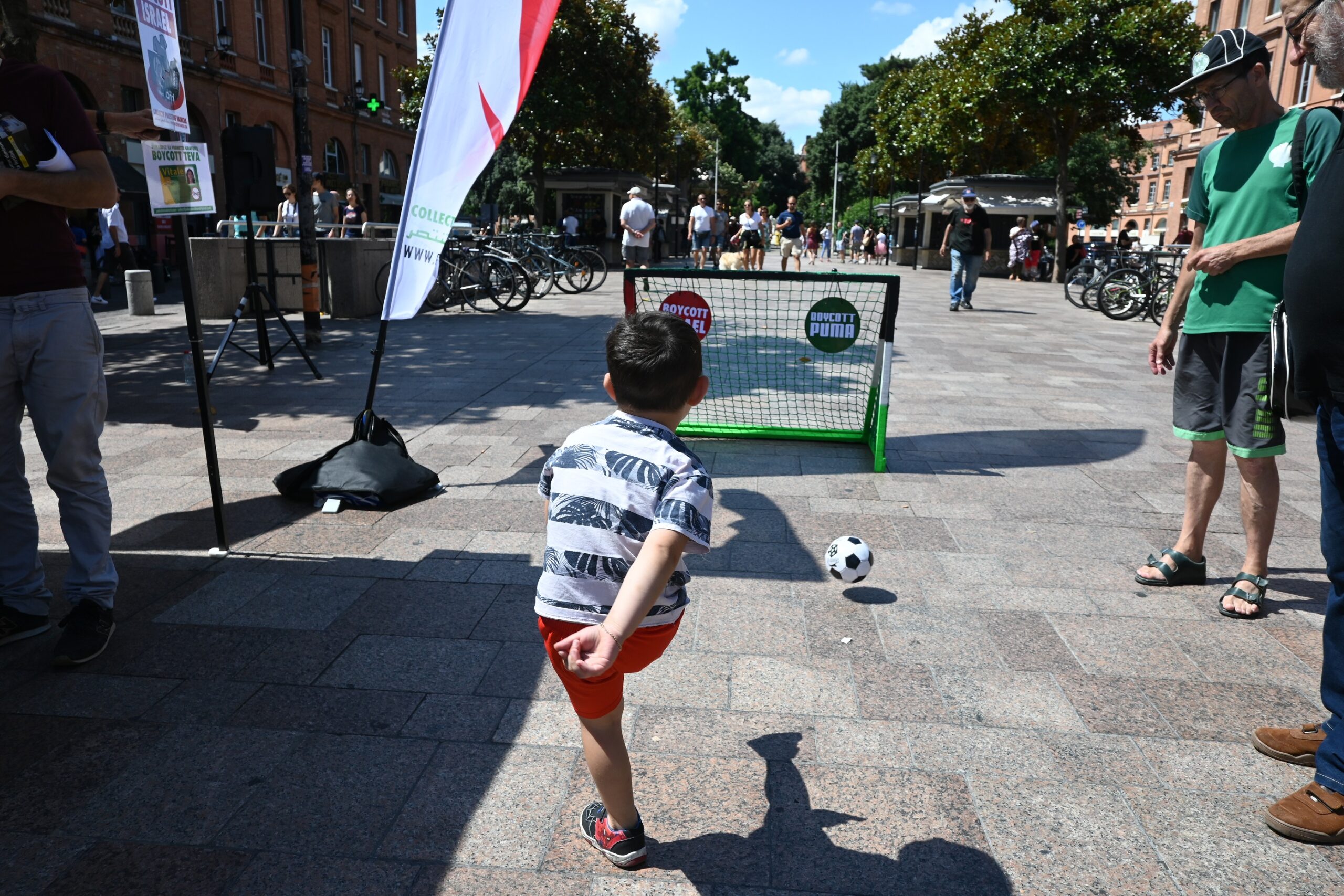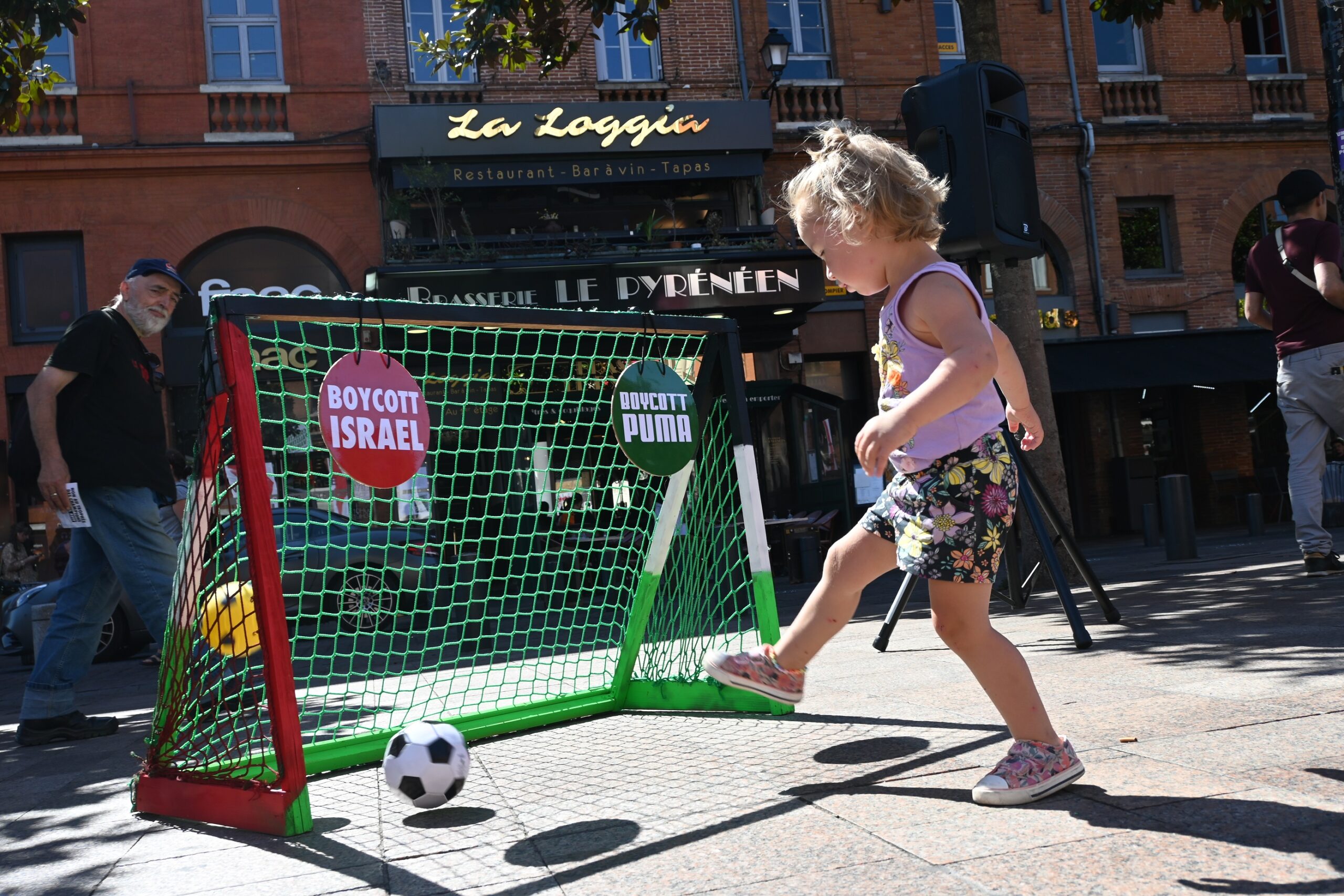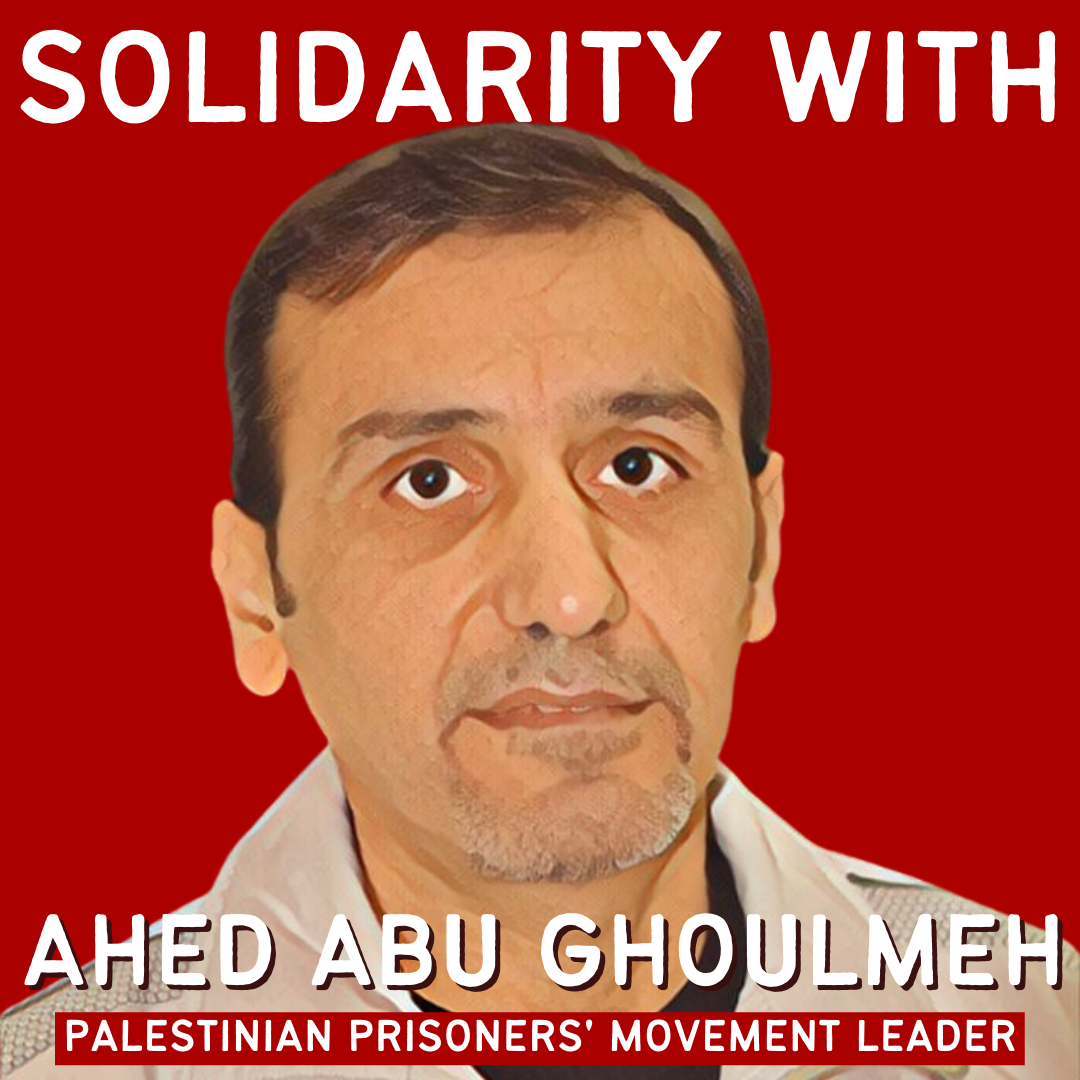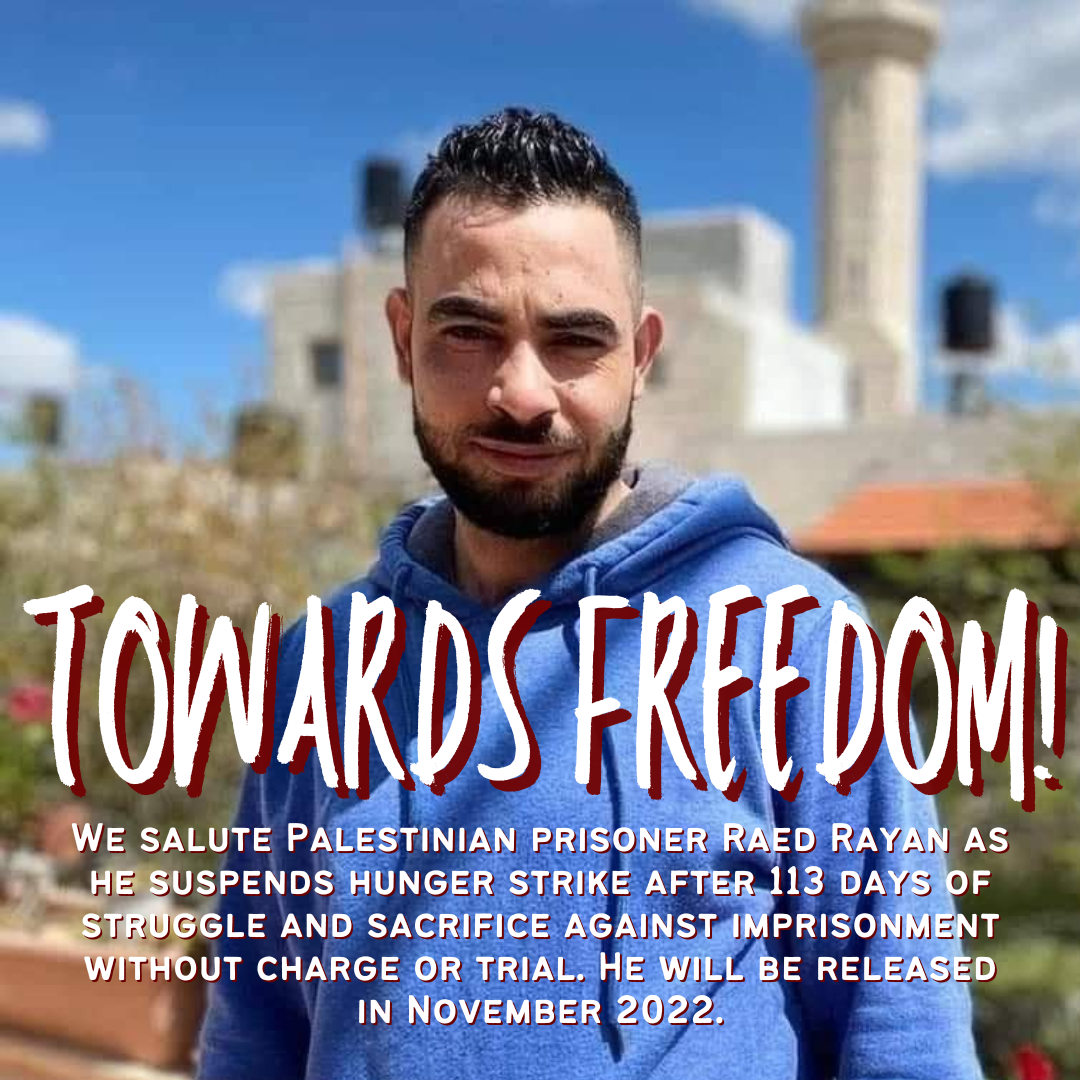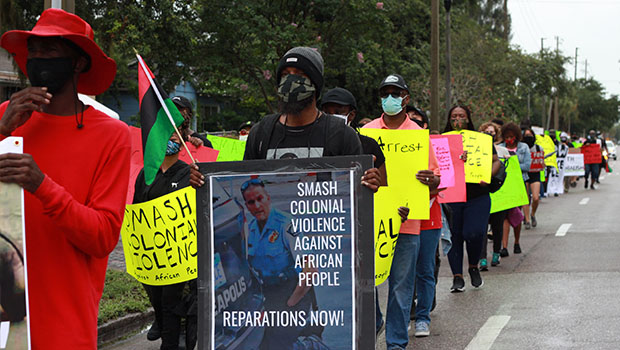
Samidoun Palestinian Prisoner Solidarity Network expresses its strong solidarity with the African People’s Socialist Party and the Uhuru Movement, targeted for a series of FBI raids and state repression in Fort Lauderdale, Florida, and St. Louis, Missouri. These raids are targeting Black organizing, anti-imperialist mobilization, and anti-war activism under the guise of a “Russian threat,” and build on a long history of infiltration, persecution, and criminalization targeting anti-imperialist forces and the Black liberation movement.
These FBI raids included the use of flash-bang grenades at the doors, forced invasions, handcuffing and the confiscation of computers and communication equipment, because they allegedly spoke with and discussed their protest actions, especially their opposition to US/NATO involvement in Ukraine, with a Russian national. These raids must be recognized as attacks on anti-imperialist organizing as a whole, intended to impose an intensified form of “sanctions” and criminalization for speaking with people and organizations internationally, in particular those countries targeted by U.S. imperialism.
It is clear that collaboration with with the international partners and strategic allies of U.S. imperialism — for example, the open cooperation of many pro-apartheid, Zionist organizations with the Israeli embassy and its military and security regime — is welcome and protected, while anti-imperialist solidarity and Black internationalism are being targeted.
Black liberation organizations, leaders and movements have been repeatedly subjected to infiltration, criminalization, persecution, imprisonment and assassination. This is magnified throughout the long history of Black pan-Africanism, anti-imperialism and internationalism, with those organizations linking the Black liberation movement to the struggle for liberation against imperialism particularly targeted. Leaders of the Black liberation movement, from Mumia Abu Jamal to Mutulu Shakur, remain behind bars today after decades of imprisonment.
As the Black Alliance for Peace noted in their statement,
“These tactics came back forcefully in response to the 2014 uprisings in Ferguson, Missouri. FBI agents tracked the movements and monitored the individuals tied to the protests. In 2016, when the murder of Freddie Gray ignited protests in Baltimore, the FBI admitted to providing an aircraft for surveillance in the weeks following the unrest. In 2017, the FBI created the designation “Black Identity Extremist” to monitor Black movement organizers. The term was updated to “Racially Motivated Violent Extremism” in 2018. FBI surveillance was rampant going into the summer 2020 rebellions, with FBI agents attempting to infiltrate protests in Portland.”
These tactics have been replicated when targeting Palestinian community, Palestine solidarity and anti-war/anti-imperalist organizing, from the historic criminalization of the Communist Party to the infiltration by police and FBI of Palestinian, anti-war and anti-imperialist parties, the targeting of Palestinian leaders like Rasmea Odeh for deportation and the failed attempt to convene a grand jury against anti-war organizers for working in solidarity with Colombia, Palestine and the Philippines.
We join with the Committee to Stop FBI Repression and the National Alliance Against Racial and Political Repression to emphasize the importance of refusing to speak with the FBI:
“All those active in the movements for peace and justice should use this moment as a reminder to never speak with agents of the federal government prying into your activism or the activism of others. “I have nothing to say, please speak with my lawyer,” are all that need to be said. If you are being taken into custody, all you are required by law to do is confirm your name and tell them that you would like to speak with your lawyer. If federal or local agents show up at your home or organizing office, do not let them in without a warrant, and if they have a warrant, inspect the details of the warrant closely – if any detail is incorrect, such as the spelling of a name or address, point out the error and do not permit entry onto the premises.”
State repression, raids, arrests and criminalization — from the use of “foreign influence” to “material support for terrorism” allegations to the designation of organizations on “terror lists” — are all a weapon used by the U.S. in order to violently enforce imperial devastation on the world, and all too frequently used by its strategic partners, like the Zionist occupation, against the resistance forces and popular movements that confront it. The mass imprisonment of Palestinians, particularly the Palestinian resistance and its leadership, and the criminalization of people’s struggles against exploitation from the Philippines to India are part of this same continuum of imperial assault. It is critical that when our comrades and members of our movement are targeted that we stand together in a common front of mutual defense and solidarity.
We urge internationalists and supporters of justice in Palestine to remain vigilant of state repression, to stand in solidarity with the APSP and the Uhuru Movement, and to escalate the anti-imperialist organizing, action and internationalism that these attacks seek to undermine.
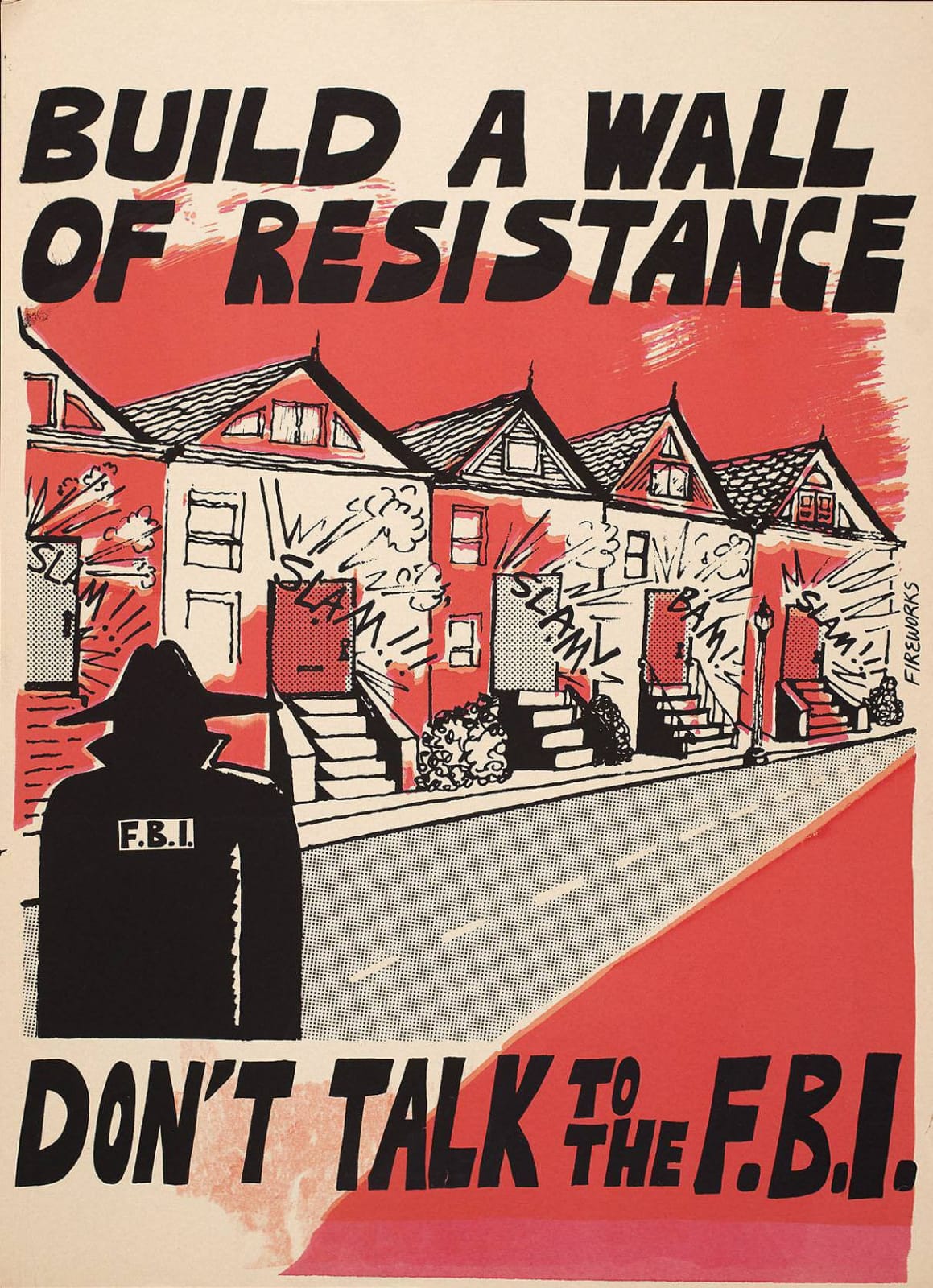

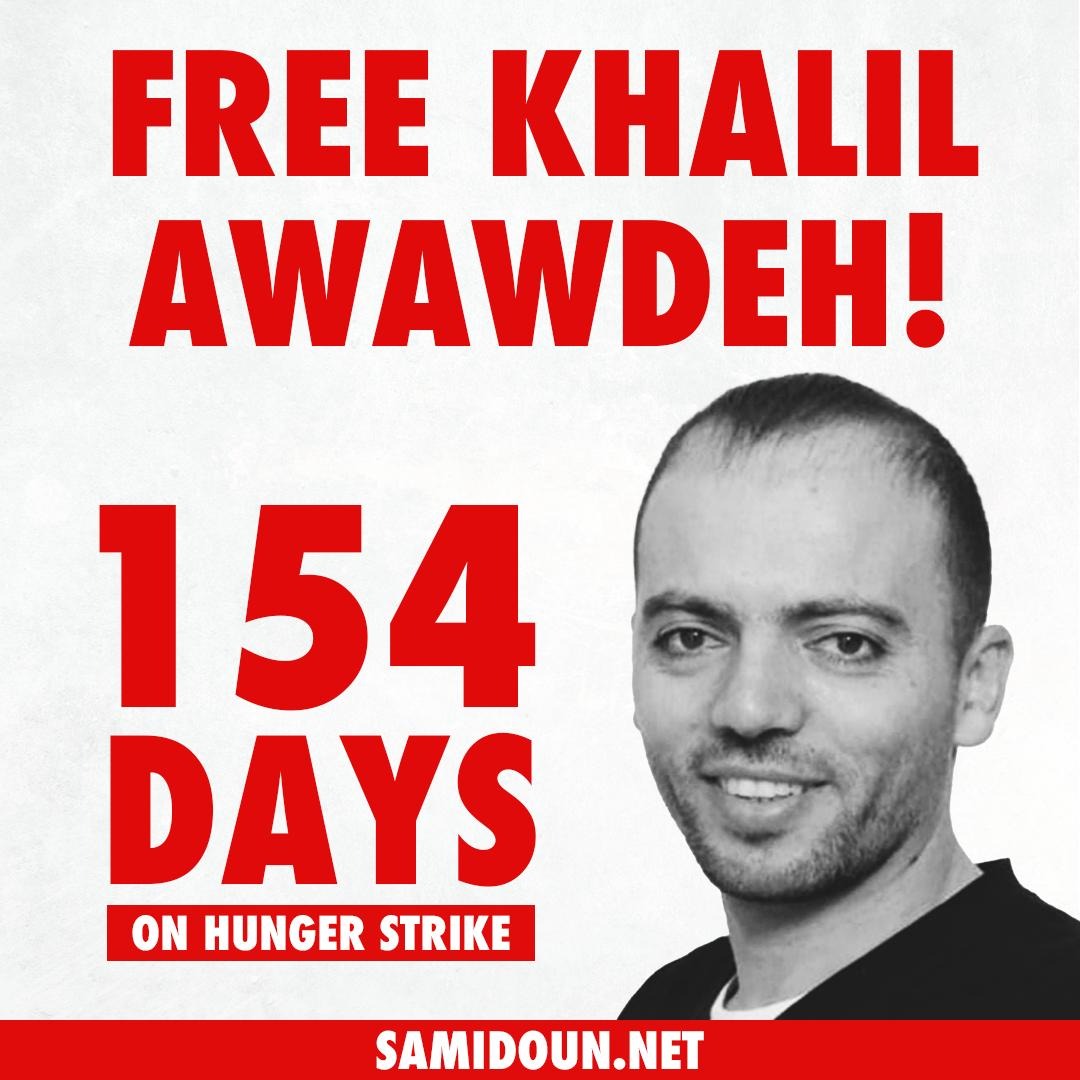
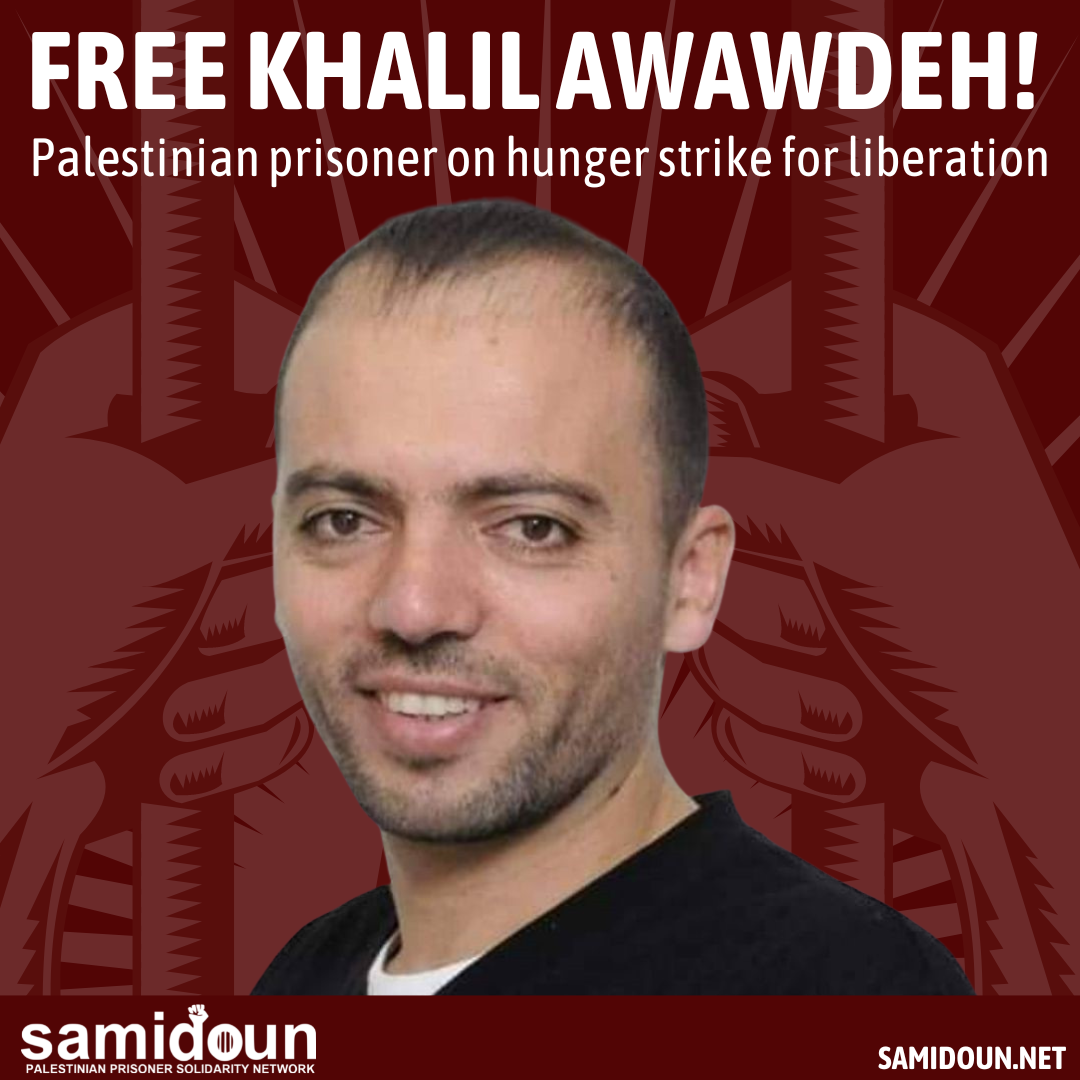
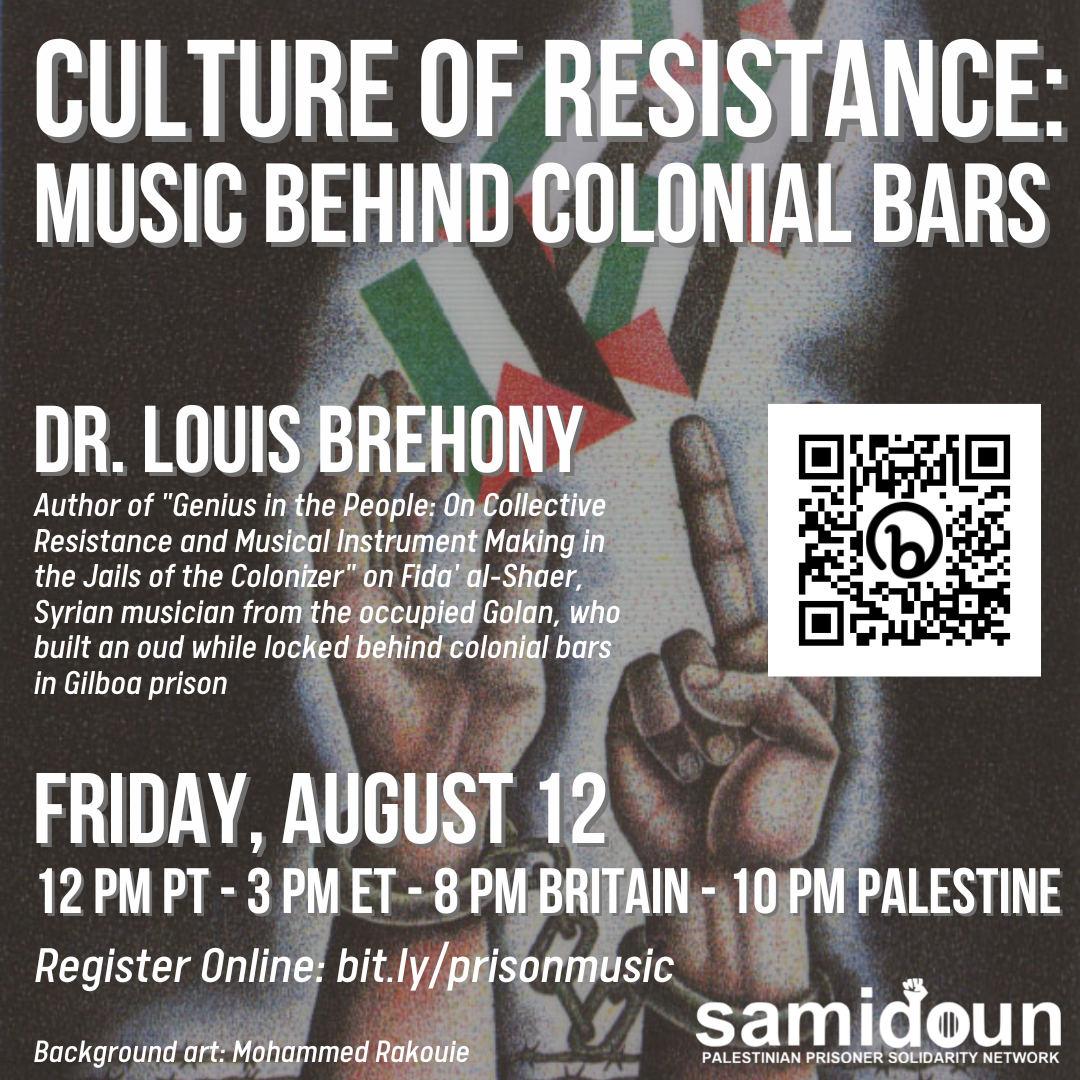
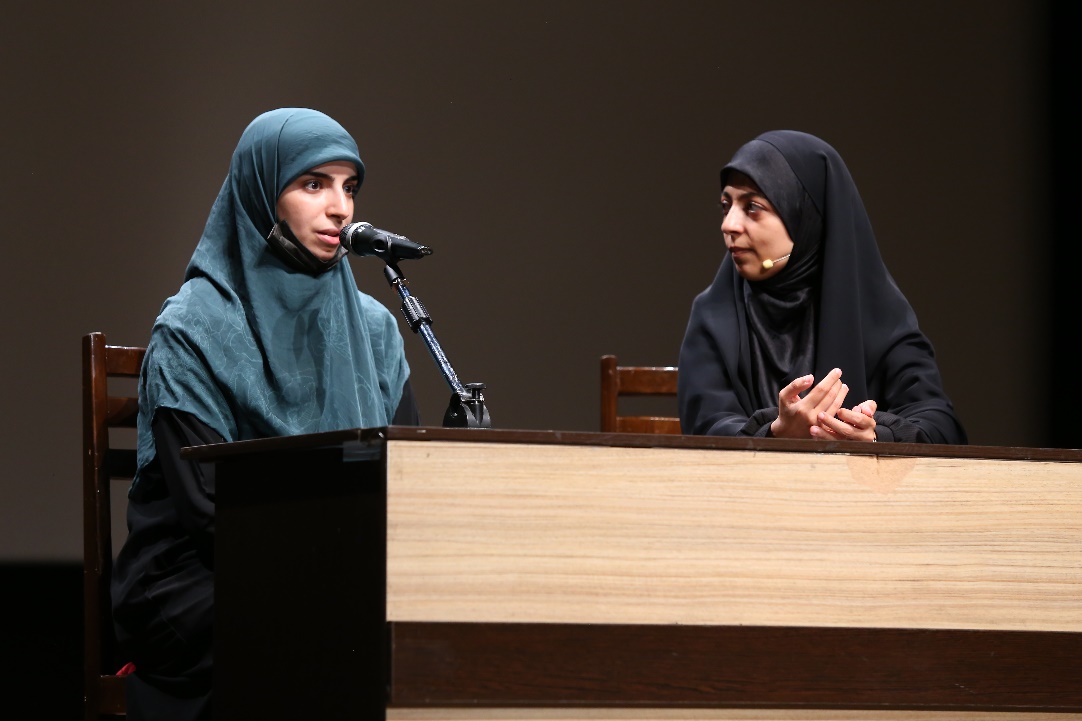 On Saturday, 30 July, Samidoun Iran screened “
On Saturday, 30 July, Samidoun Iran screened “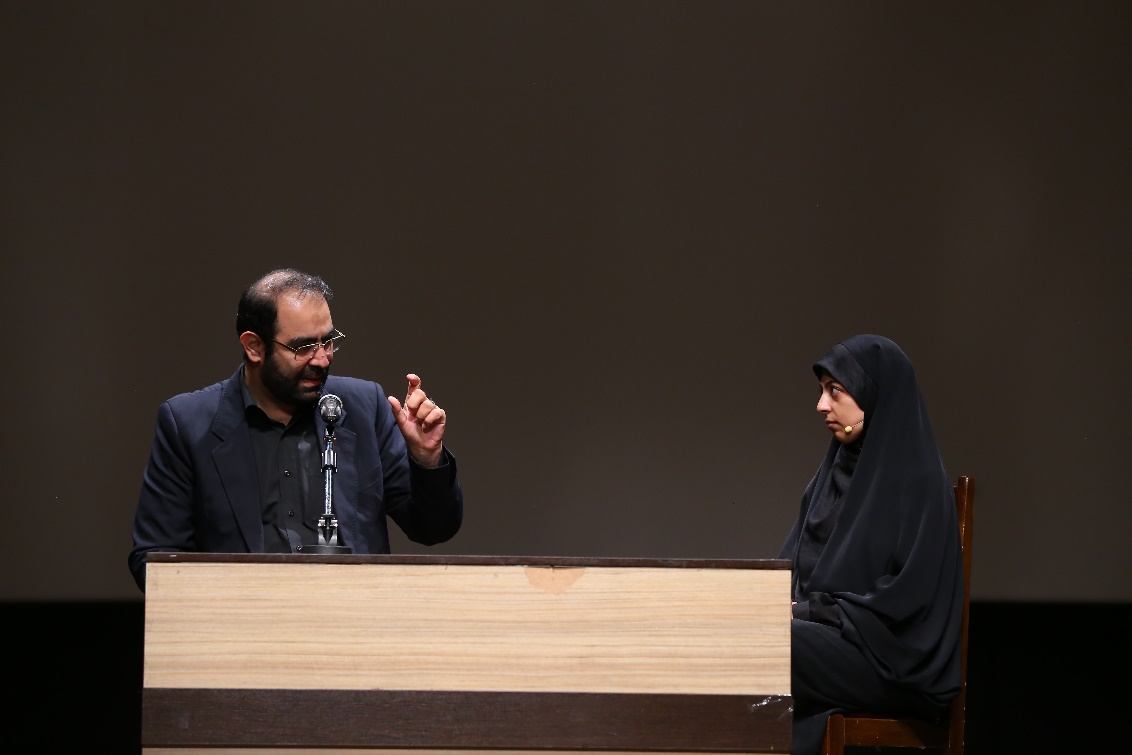
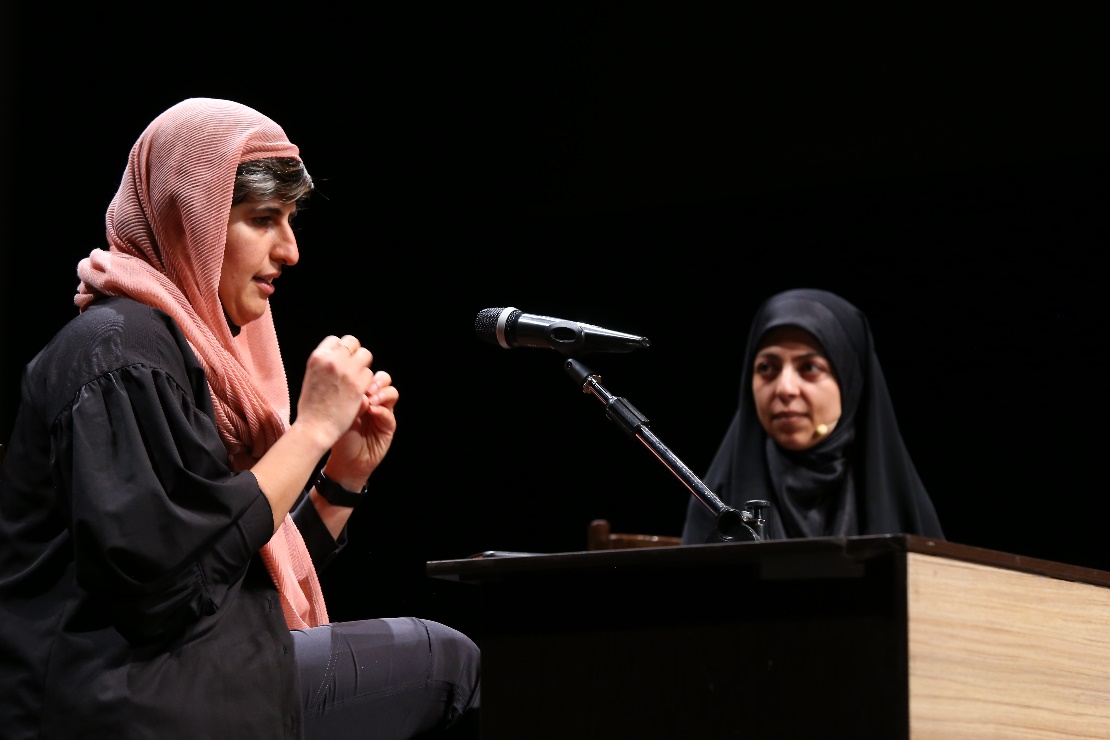
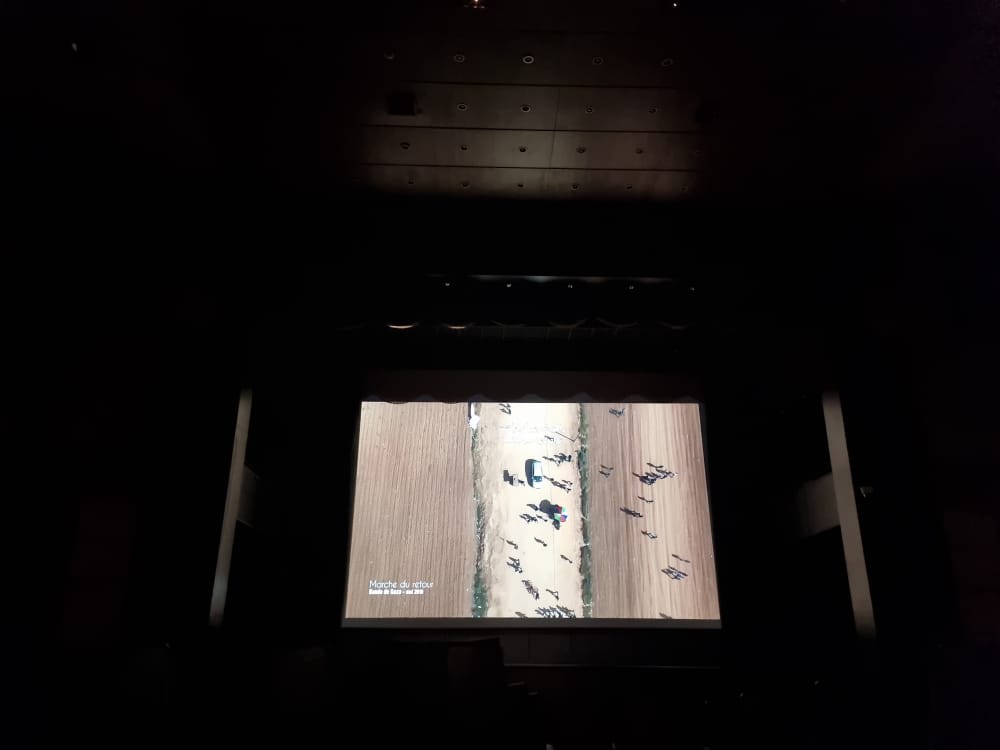
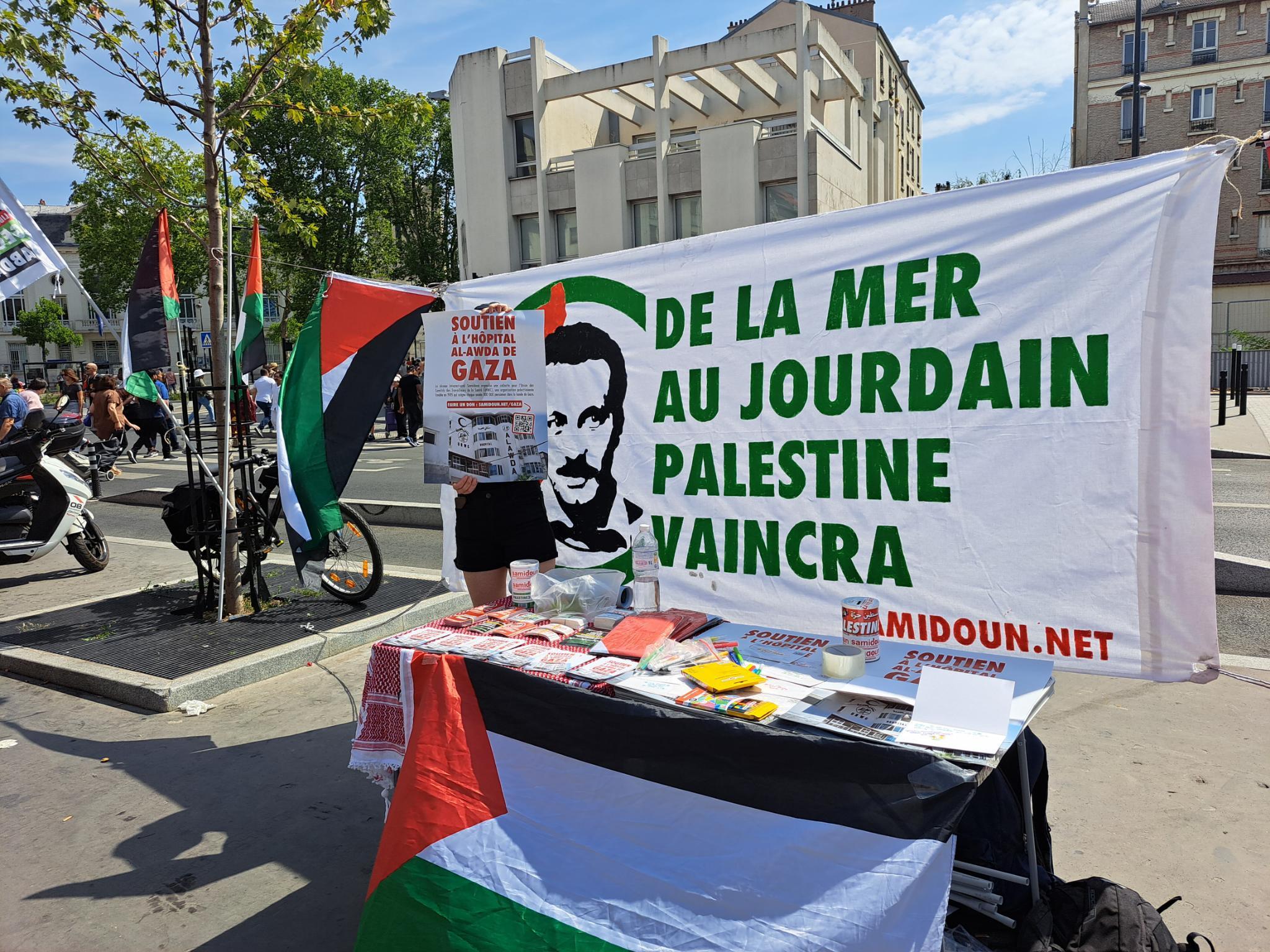
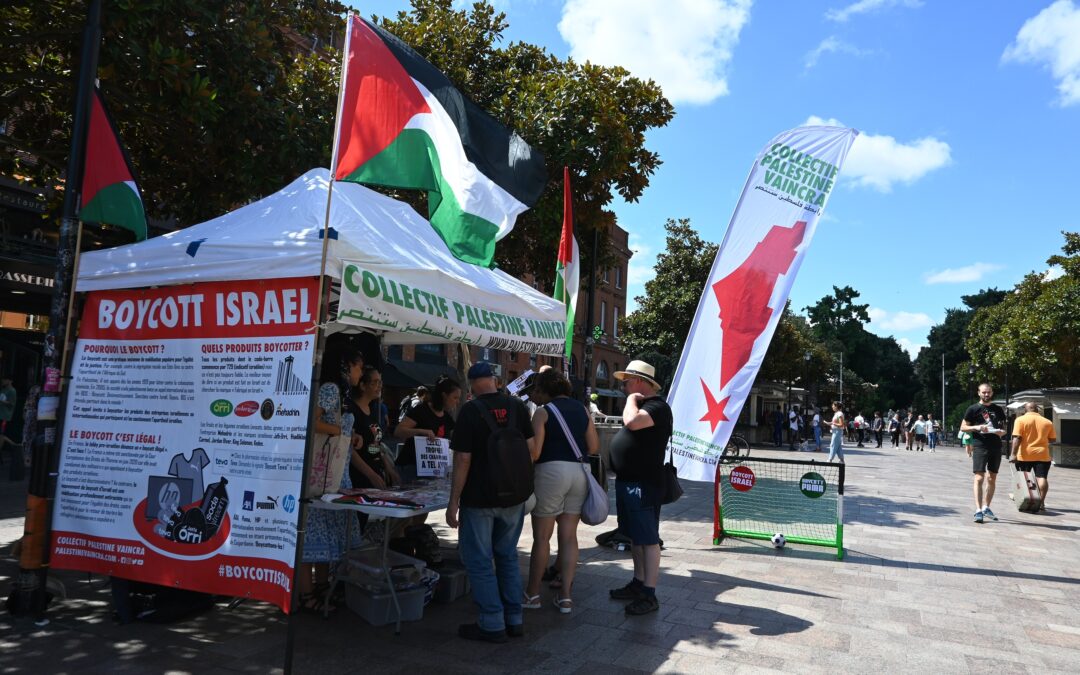
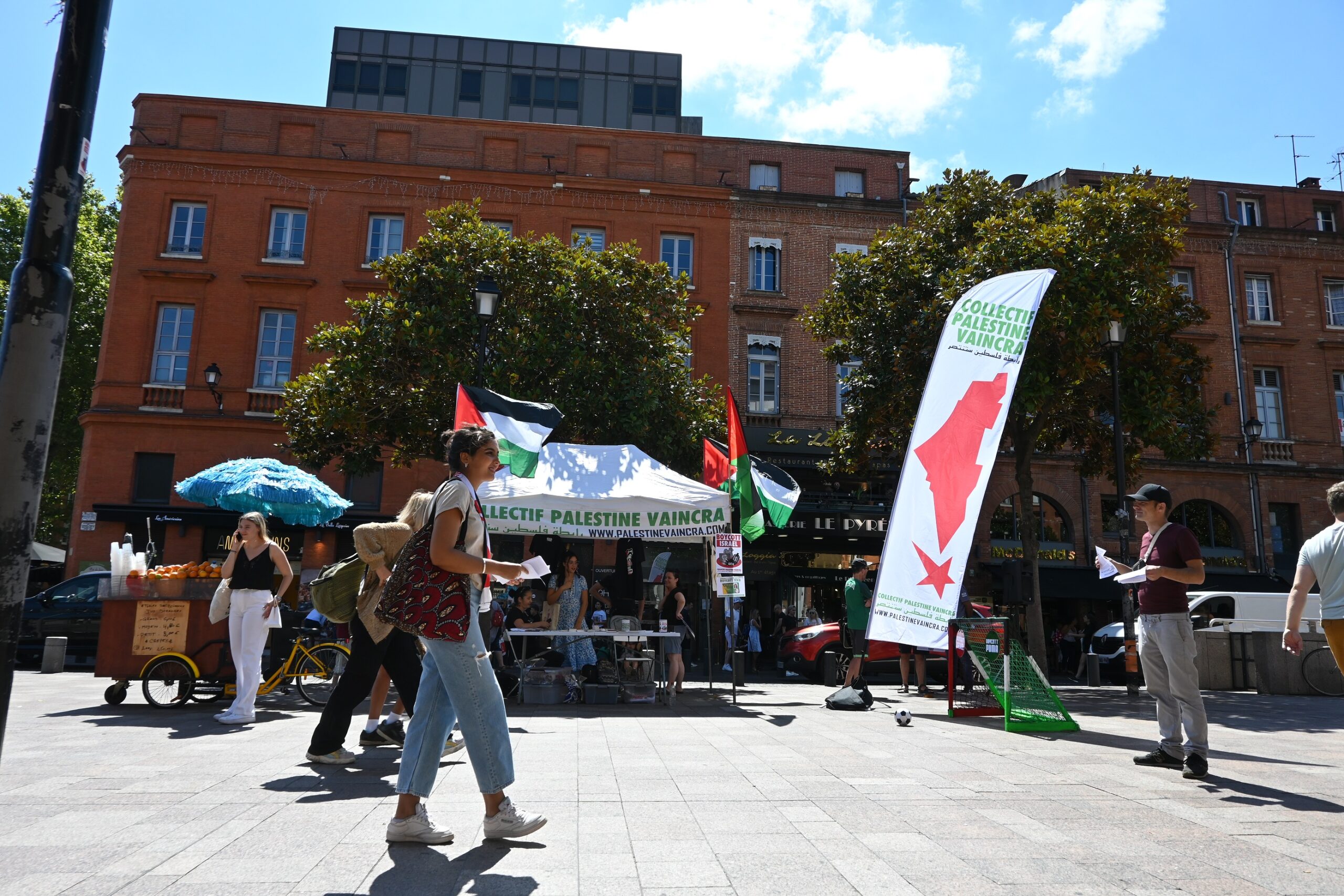 Many people visited the stand to ask for more information, pick up flyers and stickers or get a leaflet with a list of Israeli and international products to boycott in support of the Palestinian people. The stand displayed a large banner presenting the international campaign to boycott Israel, the objectives of the campaign and various targets.
Many people visited the stand to ask for more information, pick up flyers and stickers or get a leaflet with a list of Israeli and international products to boycott in support of the Palestinian people. The stand displayed a large banner presenting the international campaign to boycott Israel, the objectives of the campaign and various targets.